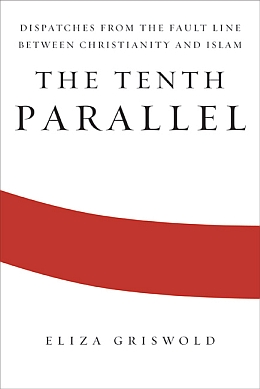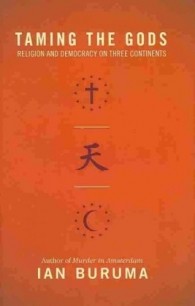- HOME
- INTRO TO THE FORUM
- USE AND MISUSE
- BADLY WRITTEN, BADLY SPOKEN
- GETTING
TO KNOW ENGLISH - PREPARING FOR ENGLISH PROFICIENCY TESTS
- GOING DEEPER INTO ENGLISH
- YOU ASKED ME THIS QUESTION
- EDUCATION AND TEACHING FORUM
- ADVICE AND DISSENT
- MY MEDIA ENGLISH WATCH
- STUDENTS' SOUNDING BOARD
- LANGUAGE HUMOR AT ITS FINEST
- THE LOUNGE
- NOTABLE WORKS BY OUR VERY OWN
- ESSAYS BY JOSE CARILLO
- A Unified Approach To The Proper Use Of Punctuation In English - II
- A Unified Approach To The Proper Use Of Punctuation In English - III
- Steeling Ourselves Against Common Subject-Verb Disagreement Pitfalls
- The Appropriate Way To Position Subordinate Clauses And Phrases
- Please Don’t Wish Me ‘More Power!’
- Let’s Say Goodbye To Those Irritating English Clichés
- ABOUT JOSE CARILLO
- READINGS ABOUT LANGUAGE
- TIME OUT FROM ENGLISH GRAMMAR
- NEWS AND COMMENTARY
- BOOKSHOP
- ARCHIVES
ADVICE AND DISSENT
This section features discussions on education, learning and teaching, and language with particular focus on English. The primary subjects to be taken up here are notable advocacies and contrary viewpoints in these disciplines and their allied fields. Our primary aim is to clarify matters and issues of importance to language and learning, provide intelligent and useful instruction, promote rational and critical thinking, and enhance the individual’s overall capacity for discernment.
Looking into religious belief as a problem in international affairs
Whether religious fundamentalism inevitably breeds intolerance and violence is one of the burning issues of our time, and two recently released books attempt to intelligently answer that provocative question: The Tenth Parallel: Dispatches From the Fault Line Between Christianity and Islam by American award-winning journalist and poet Eliza Griswold (Farrar, Straus & Giroux, 317 pages) and Taming the Gods: Religion and Democracy on Three Continents by British-Dutch writer and academic Ian Buruma (Princeton University Press, 142 pages). Both books look deeply into the growing role of religion as a problem in international affairs—The Tenth Parallel on Christianity and Islam in the circle of latitude north of the equator that covers Nigeria, Sudan, Somalia, Malaysia, Indonesia, and the Philippines, and Taming the Gods on the various fundamentalist religions that have mushroomed in the United States, the Netherlands, China, and Japan.

In The Tenth Parallel, Griswold combines her investigative journalistic skills and bold poetic vision in examining how history, resources, climate, and demographic trends have combined with and shaped the struggle among religions, particularly Christianity and Islam. No armchair writer, Griswold traveled extensively through the religious hot spots herself to write the book, investigating her subject through the many individual lives that she encountered on her journeys.
Says Lawrence Wright, author of The Looming Tower, in his review of Griswold’s book: “Ingeniously conceived and beautifully wrought, The Tenth Parallel traces the uneasy fault line of two great faiths, which have so much bloody history between them. In exploring the potent tensions that underlie so many of the conflicts of the present age, Eliza Griswold gives us a rare look at how complex and interwoven these two cultures actually are.”
Read Linda Robinson’s review of The Tenth Parallel in The New York Times now!
Read an excerpt from Eliza Griswold’s The Tenth Parallel in The New York Times now!

In Taming the Gods, Buruma observes that the fundamentalists in the United States, the Netherlands, China, and Japan offer quite modern constructions of religion, a feature that distinguishes them from traditional religions like Christianity and Islam. Taking issue with theocrats and strict secularists alike, Buruma uses the example of Martin Luther King Jr. to argue that expressions of religious beliefs in politics are legitimate for as long as those beliefs inform positions that are subject to reason.
“Buruma’s perspective is liberal, exemplified by his emphasis on distinguishing between believers and people prepared to kill for their gods,” says Niklas Anderberg of the Netherlands in a review of the book. “A liberal democracy must be able to separate potential terrorists from law-abiding believers, even fundamentalists. Not shared values but shared rules are paramount in a democratic society. Non-believers often ask why they should show respect for religious beliefs. For Buruma this is not a problem, but he observes that this doesn't mean that you have to admire them.”
Read Richard N. Cooper’s review of both books in ForeignAffairs.com now!
RELATED READING:
In “Inside the mind of Scientology’s Messiah,” a preview article for the January/February 2011 issue of the New Humanist magazine, Michael Bywater takes a dismissive look at the modern-day religion founded by the late L. Ron Hubbard, a pulp science writer turned prophet. Bywater describes Scientology as “Apotheosis without the Theos… the last really successful religion – the only successful one for 1,340 years, since Islam kicked off with the Qur’an – [that] was started way before the online Distraction Machine.”
Read Michael Bywater’s “Inside the mind of Scientology’s Messiah” in the New Humanist now!
Click to read responses or post a response
View the complete list of postings in this section
(requires registration to view & post)







